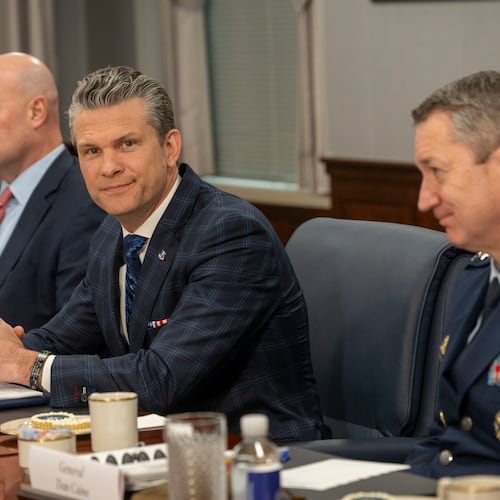America is losing its most precious resource, its heart. Can we find it in time to save ourselves? Or is it simply just too late?
We, the collective “America,” are dying. There are no vaccines; no doctors; no equipment to save us. Instead, America needs to find its heart to heal itself and must do it soon.
No city in America is immune from the hate or from the violence that often follows it. Friday evening, even in Atlanta, known as the “City Too Busy to Hate,” violence erupted. What has occurred in Atlanta during the past couple of days is a tragedy beyond comprehension. It is a reaction to injustice, but injustice can’t be solved by more injustice. Violence is not the answer. The core of the problem runs too deep.
As an American, as a Black American, and as a successful Black American, writing this hurts.
Hatred has infected America’s heart. And the hate is spreading into our intellect, our economies, our politics. The result of this disease: The death of George Floyd in Minneapolis, the shooting death of an unarmed jogger in Brunswick, the false accusations against a black birdwatcher in Central Park. Elsewhere, a white youth pastor claimed he was kidnapped by black men to cover up why he was in a hotel. In another place, a woman in Florida claimed two black men abducted her autistic son only to have her now charged with murdering her own child.
We know the names of the black men and women hurt or killed in racially charged incidents – those who have made it into the news:
George Floyd, Rodney King, Trayvon Martin, Michael Brown, Eric Garner, Breonna Taylor and Ahmaud Arbery.
Are we angry enough to relentlessly search for a cure? You don’t have to have a specific level of melanin in your DNA to be immune. This disease, the loss of America’s heart, will prove to be the downfall of us all.
Should we blame the justice system? Is it just about race? Is it bigotry that has been growing unchecked? This is a far deeper malady. It’s a hatred so deeply rooted that it has taken over our identity as a society. It is a disease so insidious that it rots all it touches and then hides behind single incidents and behind those of us who have comfortable lives. It’s all connected. We are all connected.
We are the problem. We are also the solution. Hopefully we are not too far into the cesspool of divisiveness and turmoil that we have allowed to grow and swirl around us.
Do we care enough about each other to fix this? To find America’s heart? To save ourselves? Do we understand each other enough to get angry enough to make it stop – for good?
We are liberated, but we are not free. We need to know the difference to make a difference. Do we know who we are? Did we forget our own beliefs of decency and empathy? If we don’t know who we truly are, and we don’t remember what we believe in, we are condemned to keep living this nightmare, no matter our skin color or political ideology.
Can we blame mental illness? The coronavirus? A never-ending news cycle? The economy and other inequality in America?
No doubt, we live in a world of spontaneous news reporting and easy access to an overwhelming amount of information from all types of people with varying beliefs. COVID-19 has added enormous tension to lives. As masses of people are out of work, distrust and anxiety grow and can lead to an increase in our shared societal ills: hunger or drugs, drinking, and violence.
At the deep center of the cesspool, and not to oversimplify the issues at hand, is that we are not willing to put ourselves in the shoes of those who are struggling and then figure out how to do something about those struggles.
We keep at bay those who don’t look like us or run in our circles. We allow our comfortable worlds to continue with as little interference from the discomfort of others as possible.
The time has come to stop. Hatred must stop. Alienation must stop. I am fed up and I hope you are too. Action is not simply writing a check to a diverse cause. Expecting others to move forward, is not action. Change is going to take action from ALL of us.
We must be the agents of change and drum majors for justice.
I have been committed to this cause my entire professional career — committed to creating harmony and understanding among the different individuals I call friends, colleagues, clients, mentors, and even family. I am now going to be more aggressive on this issue. I am committing to creating and executing a comprehensive plan that reaches out to the business and other community leaders, for the sake of Atlanta and beyond.
Some may feel awkward. This may not be in everyone’s comfort zone. It is difficult to come to terms that we are as near death as we can be as a society. Peaceful, intentional, actionable planning and execution is mandatory. Hate and violence are no longer an option. It’s time to stop and realize that we cannot blame others for the problem at hand, if we are unwilling to step into the fray ourselves.
Ernest Greer is co-president of Greenberg Traurig, an international law firm of over 2,200 attorneys. He serves on the boards for Children’s Healthcare of Atlanta, the Atlanta History Center, Achieve Atlanta, Big Brothers Big Sisters of America, and Atlanta Police Foundation.
About the Author
Keep Reading
The Latest
Featured

